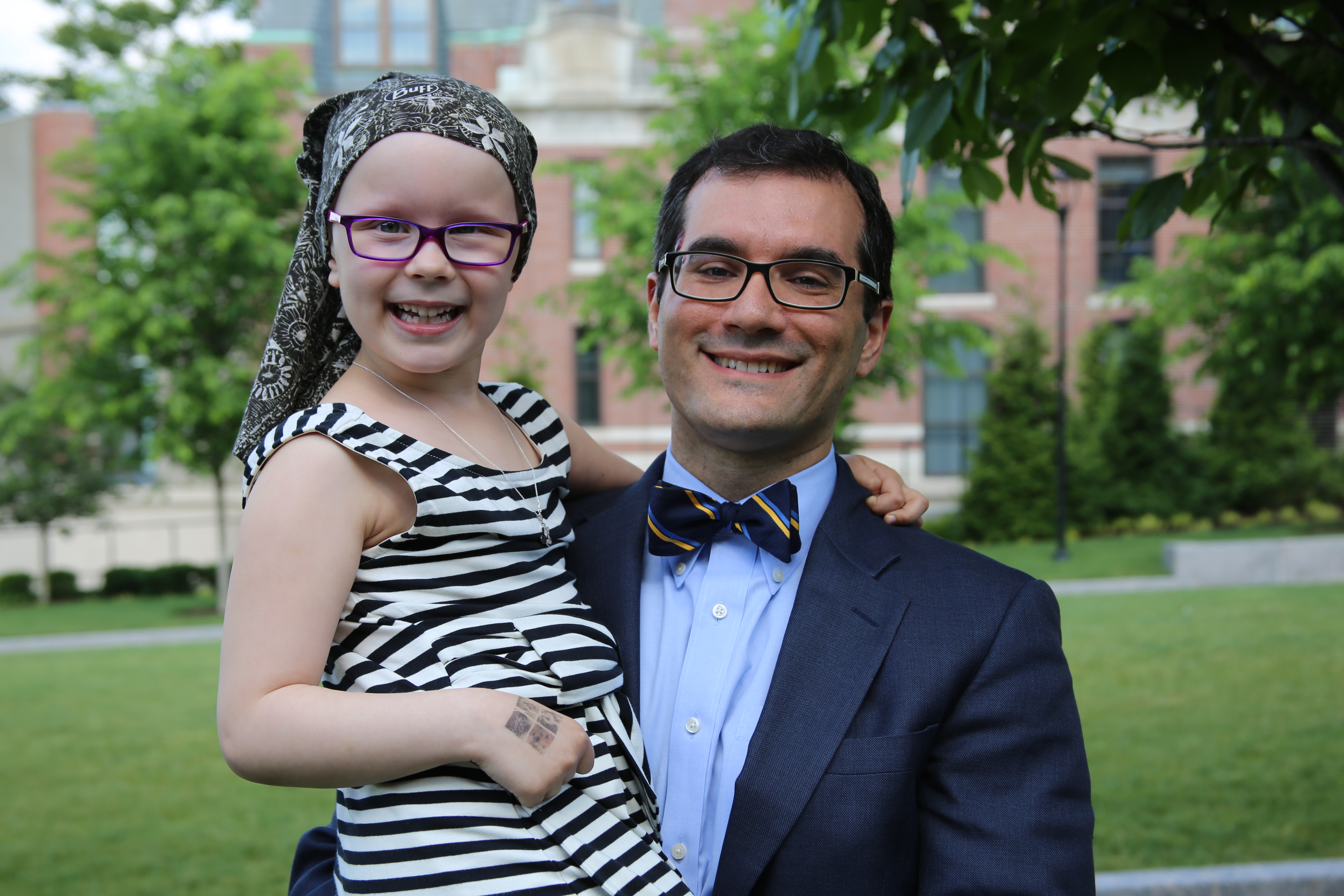Father’s Day: BWH Dad Switches Research Focus for Daughter

Leila and Arash Mostaghimi
Leila Mostaghimi was in preschool when her hair started to fall out in clumps.
“Mommy asked me, ‘Did you razor your hair?’” recalled Leila, who is now almost 7. Over the next few months back then, she lost all of the hair on her scalp, her eyebrows and on most of her body.
Leila was soon diagnosed with alopecia areata, a dermatologic autoimmune disease that causes hair loss in round patches. It was both a life-changing and career-altering moment for her father, Arash Mostaghimi, MD, director of the Dermatology Inpatient Service and co-director of the Complex Medical Dermatology Fellowship Program at BWH.
At the time, Mostaghimi was an attending dermatologist who had focused his research entirely on ways to optimize costs and outcomes in dermatology. But after Leila’s diagnosis, the Brigham dad decided to devote 25 percent of his research to the disease.
“At first, I had mixed feelings about making the change because my entire research had been about making rational decisions, and this was an emotional one,” said Mostaghimi, who has served as a lead investigator or co-author on 35 papers. “I’m not a big karma or kismet person, but it made so much sense to do it. I think if you’re in the right position and have a personal stake, then it’s important to say you tried to be part of the solution.”
He reached out to BWH colleague Kathie Huang, MD, co-director of the Hair Loss Clinic, who was already working on research related to the disease. Together, they focus on understanding the epidemiology of alopecia areata and its association with other diseases, as well as exploring innovative therapies and clinical trials to treat it.
“It’s really fantastic to be part of a department that’s supportive of me making these changes in my research agenda,” Mostaghimi said.
Leila, who wants to be a doctor when she grows up—“a different kind than Daddy,” she quickly clarified—says alopecia areata hasn’t stopped her from doing what she enjoys. Nor does she let it get in the way of making new friends.
“Alopecia areata doesn’t change much because none of that really matters,” she said.
This Father’s Day, Leila plans to show her love for her dad with a handmade craft she created with some assistance from the jewelry club at her school. It’s a token of appreciation for her father, who, among other life lessons, is teaching her how to ride a bicycle without training wheels.
“If he lets go, I wobble,” Leila said.
But her father is always there to catch her.

Leave a Reply